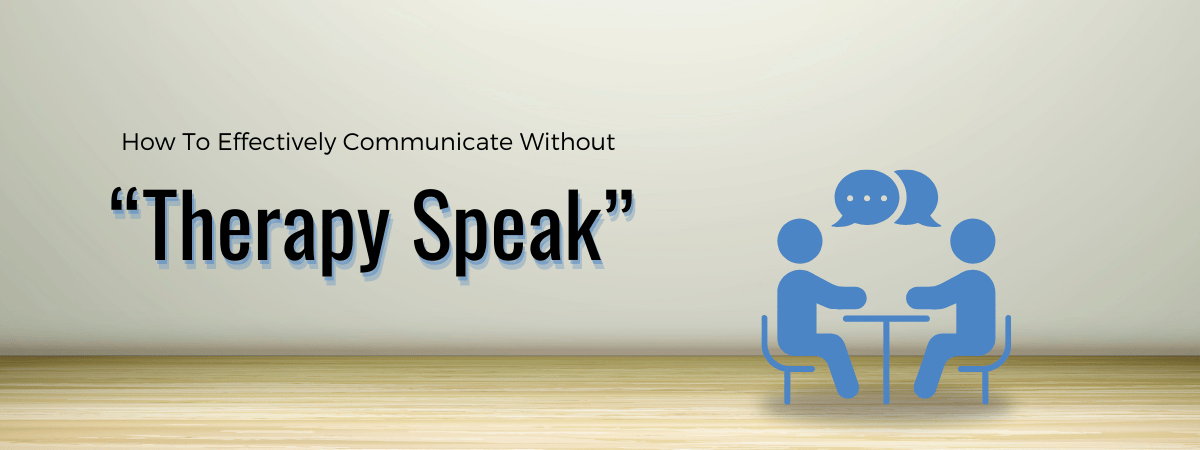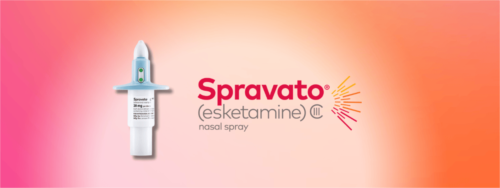

Why You Ought To Avoid "Therapy Speak" in Daily Conversations
There’s been a greater emphasis on mental health in recent times, moving once-taboo topics into public discourse. While this development is commendable, it has also introduced a phenomenon that can hinder meaningful conversation: "therapy speak."
This type of language is misunderstood, overused, and stretched beyond its true purpose by untrained people in daily situations and on social media sites like Instagram, TikTok, and more. Find out more about what what therapy speak consists of, how it impacts people, and find tips on speaking about mental health treatment more compassionately.
What Is Therapy Speak?
Therapy speak refers to using psychological terms, often adapted from treatment sessions, in casual conversations. Some expressions have made their way out of professional settings and become mainstream in headlines, hashtags, and, regrettably, heated arguments between family.
When these terms are misconstrued in everyday conversation, they can turn into a means to escape more beneficial dialogue and detrimentally misinterpret complex emotions. They might even halt beneficial conversations with lingering negative repercussions, as people with no background or authority may misdiagnose themselves or others.
Here are a few instances of therapy speak:
- “I’m setting a boundary,”
- “That’s triggering for me,”
- “Are you doing the work?”
- “Is it a safe space?”
- “Maybe you’re processing your trauma.”
While these terms can be worthwhile within a professional context at a licensed facility like The Counseling Center, they are often inappropriate in daily life.
Therapy Speak Can Weaken Genuine Conversation
At TCC, we promote integrating mental health practices into daily life. However, we also recognize the potential disadvantages of using professional or specialized language in day-to-day life. Relying on therapy speak can dilute the genuine intent of discussions, forming hurdles instead of fostering connection and understanding. We’ve found people increasingly use therapy speak as a defense mechanism.
There could be a sense that therapy speak can’t be disputed as it references what you might experience at a treatment center. Yet proper communication needs empathy, active listening, and shared understanding.
The Influence of Therapy Speak
1. Preventing Real Connections
Relying on therapy speak can make discussions seem clinical or mechanical, stripping away the personal touch that promotes real connection. It might “therapize” family relationships, transforming significant heart-to-heart discourse into what might sound like a 30-second reel generated by a psychologist on TikTok.
To illustrate, telling a friend, “I really must hold space for myself right now,” might sound cold and standoffish compared to just verbalizing, “I’m feeling overwhelmed and need a bit of time to think.”
2. Improper Use and Misunderstanding
Therapeutic phrases have particular meanings within proper contexts. Misusing terminology like “narcissistic” or “trauma” not only diminishes their actual significance but might also perpetuate stigma around mental health conditions. Some try to label others instead of listening and making time for authentic dialogue.
The Counseling Center welcomes thoughtful language that honors the importance of terms employed in therapeutic settings, as long as they are not misused or diminished in everyday discussions. We’ve found that therapy speak often breeds confusion, with numerous phrases employed inaccurately. This language might serve as a shield to safeguard us from guilt, judgment, or obligation.
3. Avoiding Accountability
While concepts like self-care and setting boundaries are important, therapy speak is frequently misused to redirect responsibility or avoid accountability. For instance, saying, “I’m protecting my boundaries,” to explain hurtful behavior can undermine the honesty and trust required in mutually beneficial relationships. There are always new phrases to explain self-centered or even hostile behaviors. The phrase “boundaries” has become particularly galling to mental health professionals.
Therapeutic phrases are now utilized when people just don’t want to do something. With all the disputes that result, you may ask if your “boundary” has more significance than your relationship.
How to Communicate Effectively Without Therapy Speak
We feel meaningful conversation doesn’t require clinical terminology. Rather, it’s about being direct, considerate, and sincere. Our counselors have a few other helpful suggestions:
1. Communicate From the Heart
Emphasize how you feel rather than relying on buzzwords when sharing emotions. For example:
- Rather than: “You’re gaslighting me.”
- Try: “When you say that, it makes me feel like my viewpoint isn’t being acknowledged.”
2. Prioritize Understanding
Aim to listen attentively in lieu of labeling behavior. Counterpoints like “Help me understand where you’re coming from” foster productive dialogue.
3. Be Mindful of Your Audience
Note that not all individuals are well versed in clinical terms. Using plain, easy-to-understand language ensures your message resonates more effectively.
4. Use Boundaries Carefully
Boundaries are critical, but they should be communicated with care. In lieu of: “I’m setting a boundary.” Try: “I have to step back from this conversation for now so I can think clearly.”
Therapy gives you strategies, not word-heavy scripts. Counselors at TCC routinely evaluate how you’re using what you’ve been instructed to make sure it enhances, rather than takes away from, your relationships.
How The Counseling Center Fosters Effective Communication
At The Counseling Center, we work to equip people with the skills they need to navigate their mental health while building healthier relationships. Our offerings include:
- Individual Therapy: One-on-one sessions to develop self-understanding and boost emotional intelligence.
- Family and Couples Therapy: Helping loved ones interact more effectively and work through conflicts constructively.
- Group Therapy: Providing a safe space for open and honest communication in a supportive setting. Our therapists emphasize helpful, everyday applications of therapeutic ideas, ensuring you can engage meaningfully with others without relying on jargon.
Request Professional Mental Health Support Today
If you want to strengthen your understanding of yourself and elevate your relationships, we’re standing by to help. Learn more about our intensive outpatient and outpatient services. If you require help immediately, please contact our round-the-clock hotline at 833-248-6271. Working together, we can equip you to communicate with clarity, purpose, and empathy—without losing who you are.
 With the passing of Matthew Perry, some people are wanting to know about Ketamine and its FDA-authorized counterpart, Esketamine. Heres all you ought to know about Ketamine and SPRAVATO.Read Full Article
With the passing of Matthew Perry, some people are wanting to know about Ketamine and its FDA-authorized counterpart, Esketamine. Heres all you ought to know about Ketamine and SPRAVATO.Read Full Article Its not uncommon to experience both a substance use disorder and mental illness near Yorktown Heights. The good news is, both can be treated at the same time.Read Full Article
Its not uncommon to experience both a substance use disorder and mental illness near Yorktown Heights. The good news is, both can be treated at the same time.Read Full Article Great news! From now on, Spravato is authorized for use as a standalone depression treatment. Contact The Counseling Center At Yorktown Heights at 914-977-0608 to learn more today.Read Full Article
Great news! From now on, Spravato is authorized for use as a standalone depression treatment. Contact The Counseling Center At Yorktown Heights at 914-977-0608 to learn more today.Read Full Article

